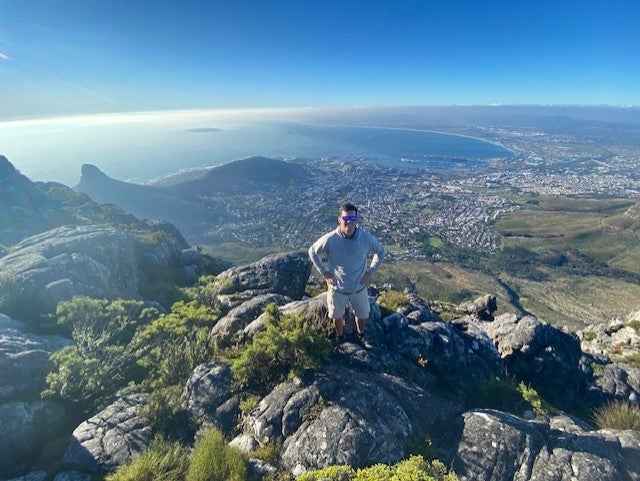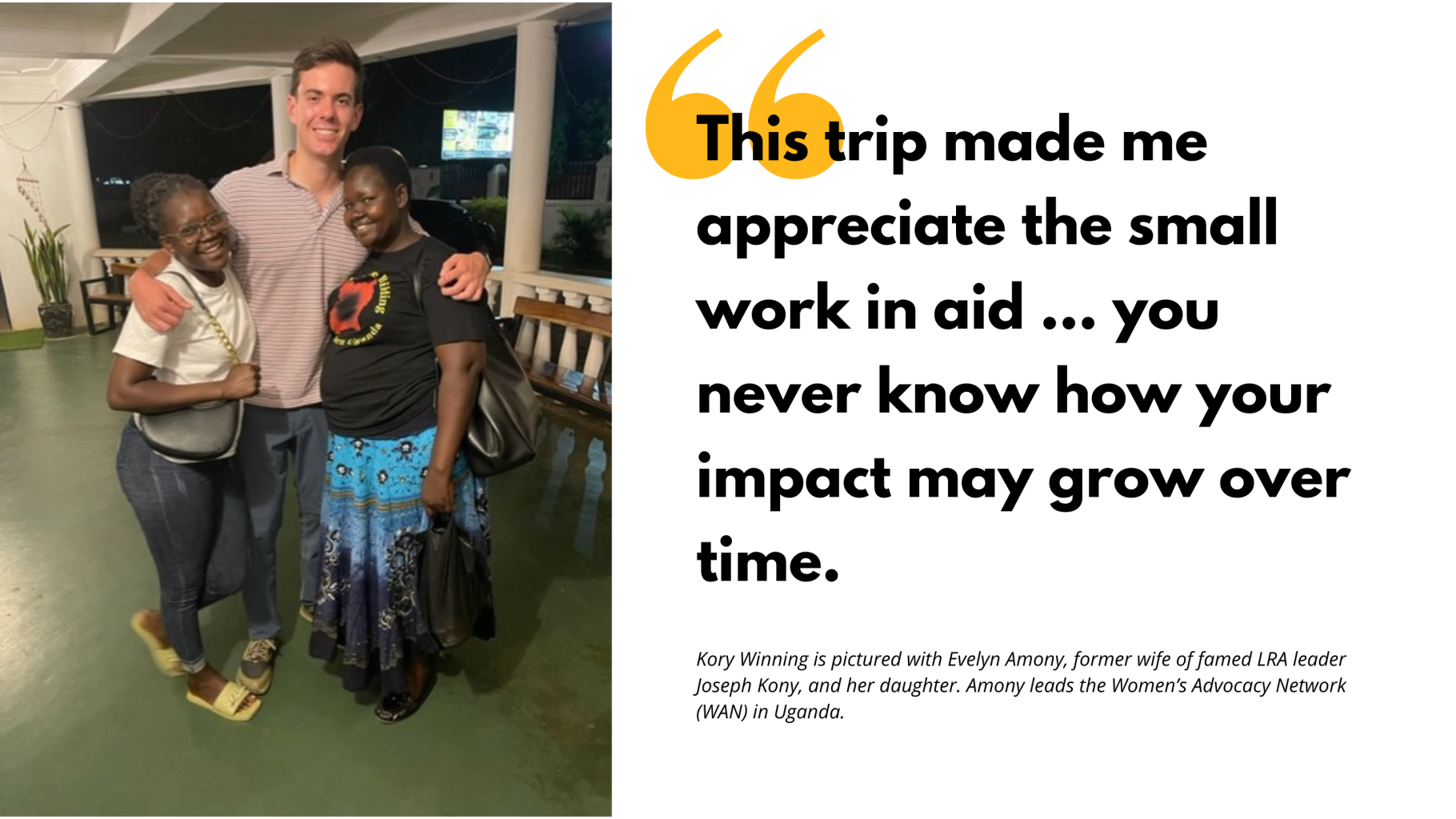 In the heat of an eight-hour bumpy van ride delivering supplies across rural African villages, Kory Winning, an MID student with a concentration in Governance and International Public Management, experienced the sweaty and unglamorous but deeply rewarding work of humanitarian aid.
In the heat of an eight-hour bumpy van ride delivering supplies across rural African villages, Kory Winning, an MID student with a concentration in Governance and International Public Management, experienced the sweaty and unglamorous but deeply rewarding work of humanitarian aid.
Winning’s internship, based in Eldoret, Kenya, and Gulu, Uganda, provided him a new lens to see the nature of international aid. He was hosted by the ASA Social Fund for Hidden Peoples, a nonprofit organization that empowers, educates and meets the needs of "hidden peoples"—a term used to describe certain groups that African culture in particular tries to hide from public view.
Hidden peoples include disabled persons, albinos, pigmies, and victims of domestic violence. And in some cases, “hidden” is literal.
"Some people that we visited have been kept in the dark corner of a mud hut for decades. One case had not seen the sun in roughly 15 years when Carmen [ASA’s Senior East African Advisor] found him,” said Winning.
Winning visited the current ASA program in Eldoret to conduct various metrics to evaluate the efficacy of the program, including the selection process, quality of training, success in career placement, and living arrangements. He then traveled to Gulu, using his research in Eldoret to help pilot the new program there.
What was a typical day like?
In Kenya, the typical day involved site visits in the rural areas of Western Kenya. This would mean an 8:30am departure from Bungoma and then roughly 4-5 hours driving through the rural areas and delivering supplies to people supported by the organization. The supplies usually consisted of a biweekly ration of necessary materials such as soap, tea, rice, oil, flour, and medicine.

Our local liaison was not exactly the smoothest driver. At some point, almost every day involved the car getting stuck, running out of gas, or puncturing a tire. Needless to say, getting to the villages was a task in itself, but this certainly made for some fun memories.
By 2:30-3pm we would return to Bungoma and settle in for the evening. Although not the longest days as far as hours, the combination of strenuous driving conditions and an unforgiveable sun made for an exhausting day. Due to the changing locations, roughly once a week involved a very long journey between cities that we were working in. Over the course of the trip, there were four 8+ hour drives. Now I have extensive experience driving across East Africa!
In Gulu, our days were more focused on roundtable discussions with partner groups in the area. These were usually from 10am-3pm, with the rest of the day being up to our discretion.
What did you do during your free time?
Some of the other interns and I would go to the market, go to ice cream stands, work out, or ride Bodabodas. The free afternoons were the best part of the trip, as that is when we got the most authentic experience.
I was super lucky that a fellow intern and I were able to spend four days in Cape Town, South Africa, in between our internship assignments in Kenya and Uganda. This was by far one of the best weeks of my life and I cannot wait to go back to Cape Town. As a history geek, South Africa has a very long and complicated history, but getting to see how the country operates from a firsthand perspective gave me a new insight into the challenges that South Africa faces.
How will you take what you learned with you as you complete the MID program?
One of the biggest lessons I learned centers around the corrupt nature of most international aid. As an MID student, development in the Global South is a huge part of my studies. Some of the things I saw from major international aid organizations were very disheartening … While all do admirable work, it was quite noticeable that outside of the urban enclaves where aid organizations are so obvious, their role was limited … [They seemed to] focus their work on the areas of political importance, leaving the “less important” rural areas in the dust. They are not all bad, but there was a noticeable absence outside of the urban core. This was one of several things that really led me to rethink some of my views on the international aid umbrella.
What is something unexpected you realized about international aid?
Accomplishing things at the micro scale is just as rewarding as the macro scale. Too often, people shy away from endeavors or transformational work because they feel like they aren't having a big enough impact. We see this through the "its just one person" or "one man can only do so much on his own" mindset. While this is true, as there are limitations to what one individual can accomplish, it is a harsh way to look at things and will ultimately prevent change in the long run.
Personally, it is easy for me to often look at things from too macro of a perspective, but this trip made me appreciate the small work in aid ... you never know how your impact may grow over time.
Are you a current GSPIA student interested in an internship abroad? Visit the Internships page to learn more.